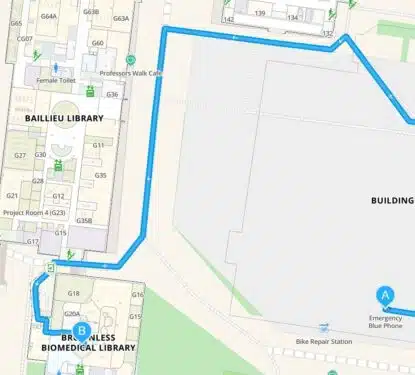We have been talking about smart buildings for decades. We have seen smart technology emerge and showcase projects achieve impressive results, however, the vast majority of new and old buildings are still not smart. A new joint white paper by Spaceworx and Memoori asks “why?” and, more importantly, “what can be done about it?”
Download the White Paper for Free Here – https://web.spaceworx.com/memoori-whitepaper-how-can-smart-building-technology-become-mainstream/
Smart building technology adoption is growing. But despite an increasingly obvious business case for investment, this technology has yet to achieve mainstream market adoption. Truly integrated smart building solutions are still largely restricted to a few high-end commercial real estate projects. We are reaching an inflection point in the smart building market. If the industry is serious about driving more growth through digitization then complex structural issues need to be addressed. Fundamentally, it’s not technology holding things back, it’s people!
‘How Can Smart Building Technology Become Mainstream?’ explores this subject from two key perspectives; the industry and the end-user. A series of in-depth interviews were carried out in Autumn 2022 with key market stakeholders including architects, developers, master systems integrators, smart building consultants, building controls manufacturers, and civil engineers.
From the end-user side, a survey of over 1,000 building occupants in Australia, Singapore and the United Arab Emirates was carried out over the same period. The comprehensive research revealed seven key problems holding back smart building adoption and a range of solutions to overcome those issues.
This white paper seeks to identify the key issues that are restricting mainstream market adoption and offers solutions that will act as catalysts to growth. Several key themes that help explain why smart building technologies have failed to gain mainstream adoption emerged consistently across our interviews.
The paper goes into detail on the issues around legacy processes that not only restrict retrofits but are all-to-often neglected in new building projects too. It explores the well-known problem of market fragmentation, explaining why it remains a source of confusion for customers through a range of integration, interoperability, and purchasing decision challenges.
The research also seeks to understand the co-evolution of smart buildings and digital transformation at the enterprise level, highlighting the weight smart tech is given in business decisions. And, it raises concern over the lack of education and awareness on key smart building topics, across the shareholder community.
Our interviews highlighted several solutions, drivers, trends, and strategic approaches that will progressively overcome the problems explored in this study. These solutions should allow smart building technology to deliver on their promise and achieve mainstream market adoption over the next 10 years.
The overwhelming consensus amongst the study’s interviewees was that the successful development of a smart building involves going on a journey, rather than targeting a specific destination, and by using this mindset to develop a strategic vision, projects become more likely to succeed. The paper warns that any such vision should recognise that smart buildings aren’t developed overnight, highlighting attempts by newcomers to develop a comprehensive, one-size-fits-all smart building from scratch have historically ended in costly failure.
The smart building is a complex challenge, requiring a mix of building systems, IT, physical security, and cyber security expertise from the outset, yet most projects learn this lesson the hard way, through costly mistakes. A key differentiator for successful smart building technology adopters, particularly amongst owner-operators, is the development of dedicated and appropriately skilled asset technology teams, that sit between the project team and the operational team and oversee smart building developments from beginning to end.
External factors, including green regulation, green occupant pressures, electricity prices, the pandemic, and others, should push the market towards mass adoption. Green regulations, in particular, will have a greater impact with a “more stick and less carrot” approach expected in the race to net-zero targets. While changing tenant and end-user expectations continue to have a significant impact on market demand for smart building solutions.
Considering the environmental impact of buildings and the rising demand for technology from building occupants, the majority of our vast and varied building stock will have to become smart. How fast smart buildings become mainstream and what shape the mainstream market takes will depend on how the problems and solutions identified in this paper are addressed.
And several interviewees suggested, “buildings that don’t keep up with these evolving user expectations will simply be left behind, becoming stranded assets in the evolving digital/net-zero economy.”
Download the White Paper for Free Here – https://web.spaceworx.com/memoori-whitepaper-how-can-smart-building-technology-become-mainstream/





I was unable to download the paper. How can I receive a copy??
Hi Galen, it seems the download page has been removed by Spaceworx. Drop us an email at support@memoori.com and I’ll reply with a copy of the paper.